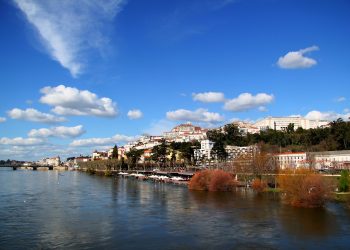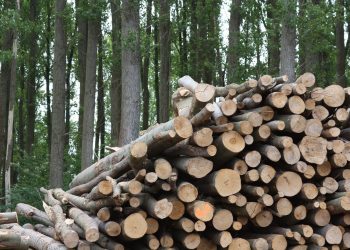Today, the Council presidency and European Parliament representatives reached a provisional political agreement on a regulation on nature restoration. The proposal aims to put measures in place to restore at least 20% of the EU’s land and sea areas by 2030, and all ecosystems in need of restoration by 2050. It sets specific, legally binding targets and obligations for nature restoration in each of the listed ecosystems — from agricultural land and forests to marine, freshwater and urban ecosystems.
The regulation is an integral part of the Biodiversity Strategy for 2030 and will help the EU reach its international commitments, in particular the UN Kunming-Montreal global biodiversity framework agreed at the 2022 UN biodiversity conference (COP15).
The provisional agreement will have to be endorsed and formally adopted by the co-legislators before entering into force.
We are faced with an increasingly dramatic reality: EU’s nature and biodiversity are in danger and need to be protected. I am proud of today’s indispensable agreement between the Council and Parliament on a nature restoration law, the first of its kind. It will help us rebuild healthy biodiversity levels across member states and preserve nature for the future generations, while fighting climate change and remaining committed to our climate goals.
Teresa Ribera Rodríguez, acting third vice-president of the government and minister for the ecological transition and the demographic challenge of Spain
Scope and targets of the regulation
The new rules will help to restore degraded ecosystems across member states’ land and sea habitats, achieve the EU’s overarching objectives on climate mitigation and adaptation, and enhance food security. The regulation requires member states to establish and implement measures to restore at least 20% of the EU’s land and sea areas by 2030.
The regulation covers a range of terrestrial, coastal and freshwater ecosystems, including wetlands, grasslands, forests, rivers and lakes, as well as marine ecosystems, including seagrass and sponge and coral beds (listed in Annexes I and II). It requires member states to put measures in place, by 2030, to restore at least 30% of the habitats types listed in both Annexes that are in poor condition. Until 2030, the co-legislators agreed that member states need to prioritise Natura 2000 sites when implementing the restoration measures set out in the regulation.
Member states must also establish measures to restore at least 60% of habitats in poor condition by 2040 and at least 90% by 2050. An additional flexibility was added for very common and widespread habitats.
Non-deterioration requirement
The text includes a requirement to prevent significant deterioration of areas subject to restoration that have reached good condition and of areas where the terrestrial and marine habitats listed in Annexes I and II occur. The co-legislators agreed to make this requirement effort-based. The requirement will be measured at habitat type level.
Restoring pollinators
In recent decades, the abundance and diversity of wild insect pollinators in Europe have declined dramatically. To address this, the regulation introduces specific requirements for member states to set out measures to reverse the decline of pollinator populations by 2030 at the latest. Based on delegated acts adopted by the Commission to establish a science-based method for monitoring pollinator diversity and populations, member states will have to monitor progress in this respect, at least, every six years after 2030.
Ecosystem-specific obligations
The regulation sets out specific requirements for different types of ecosystems.
Agriculture ecosystems
The text requires member states to put measures in place aiming to achieve increasing trends in at least two of the following three indicators:
- such as the grassland butterfly index
- the share of agricultural land with high-diversity landscape features (HDLFs)
- the stock of organic carbon in cropland mineral soil.
It also sets timebound targets to increase the common farmland bird index at national level.
The co-legislators agreed to provide flexibility to member states when rewetting peatlands, as some will be disproportionately impacted by these obligations. The text sets targets to restore 30% of drained peatlands under agricultural use by 2030, 40% by 2040 and 50% by 2050, although member states that are strongly affected will be able to apply a lower percentage. Restoration measures include the rewetting of organic soils constituting drained peatlands, which helps increase biodiversity and reduce greenhouse gas emissions. The co-legislators also agreed that the achievement of the rewetting targets does not imply an obligation for farmers and private landowners.
Forest ecosystems
Under the agreed text, member states will be required to put measures in place to enhance the biodiversity of forest ecosystems and achieve increasing trends at the national level of certain indicators, such as standing and lying deadwood and the common forest bird index, taking into account the risk of forest fires.
The co-legislators also added a provision calling on member states to contribute to the planting of at least three billion additional trees by 2030 at the EU level.
Urban ecosystems and river connectivity
For urban ecosystems, the Council and Parliament agreed that member states should achieve an increasing trend in urban green areas until a satisfactory level is reached. They also agreed that member states should ensure that there is no net loss of urban green space and urban tree canopy cover between the entry into force of the regulation and the end of 2030, unless urban ecosystems already have over 45% of green space.
The provisional agreement includes an obligation for member states to identify and remove man-made barriers to the connectivity of surface waters, in order to turn at least 25 000 km of rivers into free-flowing rivers by 2030, and maintain restored natural river connectivity.
National restoration plans
Under the new rules, member states must regularly submit national restoration plans to the Commission, showing how they will deliver on the targets. They must also monitor and report on their progress.
The co-legislators opted for a stepwise approach. Member states would first submit national restoration plans covering the period until June 2032, with a strategic overview for the period beyond June 2032. By June 2032, member states would submit restoration plans for the ten years until 2042 with a strategic overview until 2050, and by June 2042 they would submit plans for the remaining period to 2050.
The text allows member states to take into account their diverse social, economic and cultural requirements, regional and local characteristics and population density, including the specific situation of outermost regions, when establishing their plans.
Financing restoration measures
The provisional agreement introduces a new provision tasking the Commission with submitting a report, one year after the entry into force of the regulation, with an overview of the financial resources available at EU level, an assessment of the funding needs for implementation, and an analysis identifying any funding gaps. Where appropriate, the report would also include proposals for adequate funding, without prejudging the next multiannual financial framework (MFF, 2028–2034).
The co-legislators also agreed to introduce a provision encouraging member states to promote existing private and public schemes to support stakeholders implementing restoration measures, including land managers and owners, farmers, foresters and fishers. The text also clarifies that national restoration plans do not entail an obligation for countries to re-programme the common agricultural policy (CAP) or the common fisheries policy (CFP) funding under the 2021–2027 MFF in order to implement this regulation.
Review and emergency brake
The provisional agreement sets the date of 2033 for the Commission to review and assess the application of the regulation and its impacts on the agricultural, fisheries and forestry sectors, as well as its wider socio-economic effects.
The text also introduces a possibility to suspend the implementation of those provisions of the regulation related to agricultural ecosystems for up to one year via an implementing act, in the event of unforeseeable and exceptional events outside of the EU’s control and with severe EU-wide consequences for food security.
Next steps
The provisional agreement will now be submitted to the member states’ representatives within the Council (Coreper) and to the Parliament’s environment committee for endorsement. If approved, the text will then need to be formally adopted by both institutions, following legal-linguistic revision, before it can be published in the EU’s Official Journal and enter into force.
Background
The European Commission proposed a nature restoration law on 22 June 2022, under the EU biodiversity strategy for 2030, which is part of the European Green Deal. Over 80% of European habitats are in poor shape. Past efforts to protect and preserve nature have not been able to reverse this worrying trend.
This is why, for the first time ever, the proposal sets out to adopt measures to not only preserve but to restore nature. The proposal aims to improve the state of nature by setting binding targets and obligations across a broad range of ecosystems on land and at sea.
Member states would have to put in place effective and area-based restoration measures in order to reach the ecosystem-specific targets. In order to assess the measures, member states would have to plan ahead by developing national nature restoration plans, in close cooperation with scientists, interested stakeholders and the public. The proposal would also define biodiversity indicators to measure progress.
The Council reached an agreement (‘general approach’) on the proposal on 20 June 2023 at the Environment Council meeting, while the European Parliament adopted its position on 12 July.
- Council general approach on the nature restoration law
- Nature restoration (background information)
- Biodiversity: how the EU protects nature (background information)
- European Green Deal (background information)
Fonte: Conselho da UE




















































